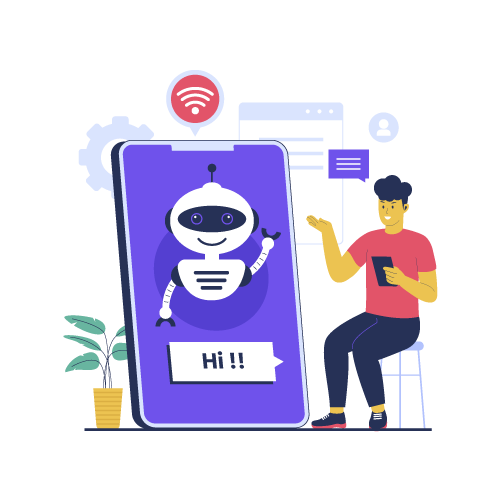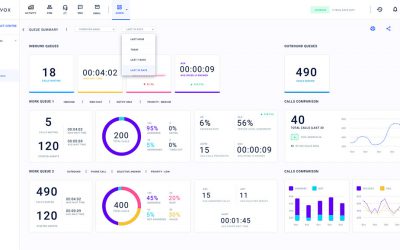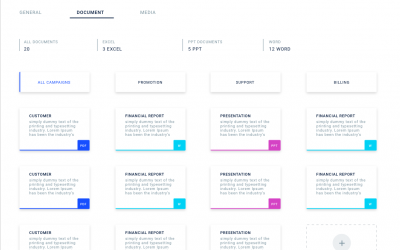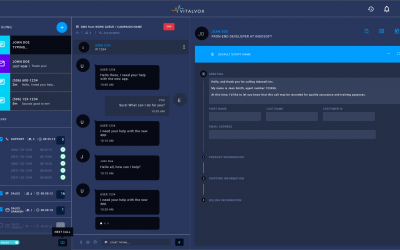Artificial intelligence (AI) has become a game-changer across various industries, and the software sector is no exception. From boosting efficiency to enhancing user experiences, AI trends transforming software are revolutionizing how businesses and developers operate. Let’s explore the latest AI advancements and their impact on the software industry.
1. The Rise of AI-Powered Automation
One of the most significant AI trends transforming software is automation. AI is streamlining tasks that were once manual, helping companies reduce operational costs while increasing productivity. For developers, automation tools powered by AI can now write code, debug, and even predict potential software vulnerabilities before they occur. Meanwhile, businesses benefit from faster time-to-market for products and solutions.
As a result, developers can focus on more creative and complex tasks, while businesses enjoy seamless, scalable operations. Consequently, companies can better meet growing consumer demands without overextending their teams, making AI automation a crucial element in staying competitive.
2. AI in Personalized Software Solutions
AI is also driving hyper-personalization in software applications, transforming how businesses engage with customers. By analyzing user behavior and preferences, AI algorithms deliver highly tailored experiences. Whether through recommendation engines or personalized interfaces, companies are using AI to enhance customer satisfaction in real time.
This trend means that developers now need to build adaptive and data-driven applications that evolve with the user. Furthermore, businesses that embrace AI-powered personalization are seeing increased customer retention and higher satisfaction levels, giving them a competitive edge in an increasingly crowded market.
3. AI for Enhanced Security
Given the growing threat of cyberattacks, AI is emerging as a critical tool for improving software security. AI-driven cybersecurity solutions can detect unusual patterns and flag potential threats before they cause significant harm. Therefore, this proactive approach ensures businesses stay ahead of cybercriminals and avoid costly disruptions.
For developers, integrating AI into security frameworks means building more robust protection against vulnerabilities. Meanwhile, businesses gain greater peace of mind knowing their software and data are safer, which ultimately reduces the risk of breaches and downtime.
4. Natural Language Processing (NLP) and Conversational AI
Natural Language Processing (NLP) has been making significant strides in AI development, especially in creating conversational interfaces like chatbots and virtual assistants. This trend is transforming customer support by enabling real-time, human-like interactions.
For developers, the focus is now on building more sophisticated NLP algorithms that can understand context and intent more accurately. Additionally, businesses benefit from faster response times, improved customer service, and reduced reliance on human agents for routine queries, which leads to higher efficiency and lower operational costs.
5. AI in Low-Code and No-Code Development
Low-code and no-code platforms are being supercharged by AI, making software development more accessible to non-technical users. AI-driven platforms can now suggest workflows, automatically generate code, and even assist in creating entire applications with minimal human intervention.
For businesses, this trend is a true game-changer. Companies can accelerate their digital transformation efforts by empowering teams to build solutions without needing deep coding knowledge. Moreover, developers can focus on higher-level tasks as AI handles much of the repetitive and foundational work.
What This Means for Businesses and Developers
The integration of AI into software development and business processes represents a fundamental shift in how we create, deploy, and interact with technology. For businesses, AI offers enhanced efficiency, personalized customer experiences, and stronger security. Moreover, developers will find that AI is reshaping their roles, allowing them to focus on more innovative and strategic projects.
In the years ahead, companies that fail to adopt AI will likely struggle to keep up with their AI-driven competitors. Therefore, developers must stay ahead of the curve by continuously learning about AI tools and technologies, ensuring they can harness the full potential of these trends.
Contact Us
Ready to leverage the power of AI in your software solutions? Contact us today to learn how we can help you integrate cutting-edge AI technologies into your business. Let’s work together to build smarter, more efficient software solutions that keep you ahead of the competition!



